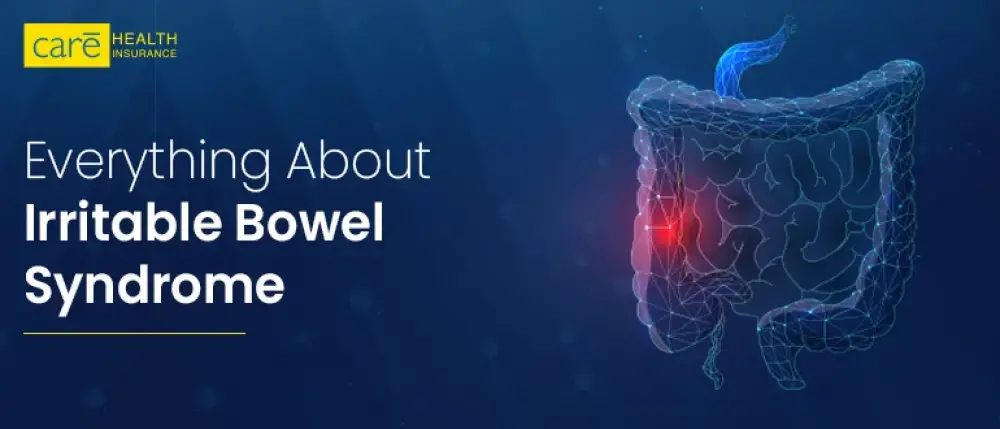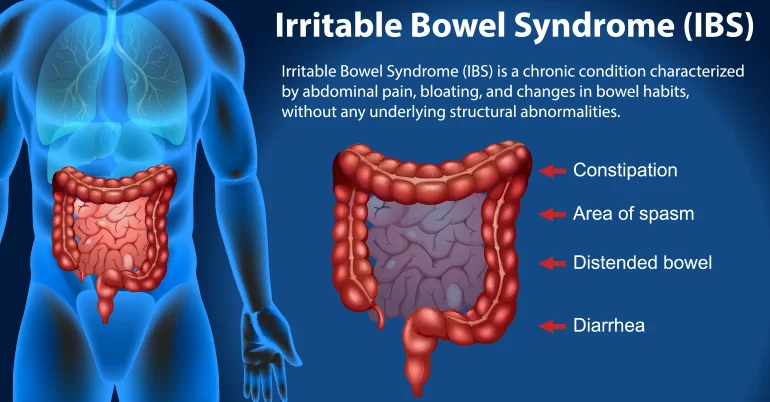Subscribe to get weekly insights
Always stay up to date with our newest articles sent direct to your inbox
Published on 21 Nov, 2024
Updated on 21 Nov, 2024
483 Views
3 min Read

Written by Mudit Handa
favorite0Like
favoriteBe the First to Like
It is very rightly said– “Hurry, curry, and worry lead to peptic ulcers”. Despite knowing, today’s fast-moving generation is frenzied to attain success, neglecting concern for well-being. Poor lifestyle, deficiency in vital nutrients, long working hours and stress have led to several lifestyle diseases.
One of the most commonly experienced diseases is irritable bowel syndrome, whose symptoms are reported by a large portion of India's working population. The Indian Neurogastroenterology and Motility Association has reported that 4.2% to 7.5% of Indians suffer from irritable bowel disease symptoms. It is prevalent in both men and women.
If you are constantly facing problems like constipation, gas or diarrhoea, it may be a sign that you might be having bowel syndrome symptoms.
This article will shed some light on the causes, symptoms and treatment of irritable bowel disease.
Irritable Bowel Syndrome (IBS) is a common disorder affecting the colon. It is characterised by symptoms like muscle cramp in stomach, abdominal pain, bloating and excessive flatulence. More severe symptoms include constipation and diarrhoea, often both at the same time.

You can easily perceive that you have Irritable Bowel Syndrome if you are experiencing the following symptoms:
Though irritable bowel movement impacts both men and women similarly, research has found that it can be more disturbing for women whose bodies are designed to perform various functions. While the common symptoms mentioned above are similar in both men and women, some women might also complain about–
The exact causes of irritable bowel syndrome are unknown. However, several factors contribute towards this disease. These include:
IBS is a chronic condition requiring long-term management. You may be able to treat your IBS by making a few changes to your diet and lifestyle, such as:
To treat irritable bowel syndrome, a healthy diet rich in fibre should be followed. Foods that cause gas should be avoided.
For treatment of Irritable Bowel Syndrome, you must consume the following foods that are rich in dietary fibre such as:
The primary goal of treatment for IBS is to alleviate the symptoms and enhance the quality of life. Hence, treatment of irritable bowel syndrome should involve dietary changes, stress management techniques, and medications.
>> Also Read: Inflammatory bowel disease: Causes, symptoms, and treatments
No. Despite irritable bowel syndrome being very unbearable and disruptive, it does not cause any change in the tissue of the intestine. Besides, IBS never poses the risk of colorectal or intestinal cancer.
Although irritable bowel syndrome doesn’t trigger cancer symptoms, you must still be financially prepared to handle a health risk of such a degree.
The best way to do so is —
It is always a wise decision ideal to prepare adequate health coverage for major critical diseases such as cancer. The best way to do so is to buy the Care Cancer Mediclaim Plan, which guarantees comprehensive coverage of defined cancer and all the advanced medical treatments, such as radiotherapy. Without a second thought, you should get yourself and your family covered for cancer today itself and live a life free of the stress of unanticipated medical costs.
Disclaimer: It is essential to verify the policy details and coverage with the official policy documents. Also, kindly consult a professional medical expert to verify the details of health concerns.
favoriteBe the First to Like
Thyroid : मामूली नहीं हैं महिलाओं में थायराइड होना, जानें इसके लक्षण और घरेलू उपचार Vipul Tiwary in Diseases
शुगर कंट्रोल कैसे करे? जानें, डायबिटीज में क्या खाना चाहिए Vipul Tiwary in Health & Wellness
हाई ब्लड प्रेशर को तुरंत कंट्रोल कैसे करें? देखें इसके उपाय Vipul Tiwary in Diseases
पैरों में दर्द किस कमी से होता है? जानें, इसके घरेलू इलाज Vipul Tiwary in Health Insurance Articles
Is Cryotherapy Safe? Everything That You Should Know About! Sejal Singhania in Diseases
Understanding Bile Duct Cancer Through Everyday Life Nidhi Goyal in Diseases
Your Guide to Urological Cancer: Types, Symptoms, Treatment & Early Detection Sejal Singhania in Diseases
The Long-Lasting Effects Of Testicular Cancer That You Should Know! Sejal Singhania in Health Insurance Articles
Always stay up to date with our newest articles sent direct to your inbox
Loading...